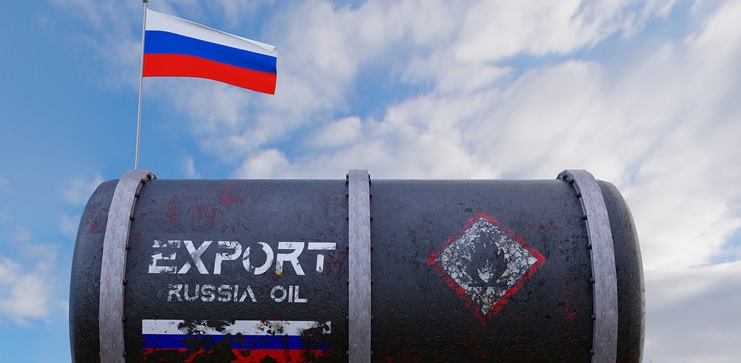 Pic.: Pakistan Today
Pic.: Pakistan Today
As the war in Ukraine grinds on, the sanctions packages keep coming. On Friday, the EU passed its 18th package. Although the sanctions have provided obstacles for the Russian economy, they have not been able to stop Vladimir Putin from continuing his invasion. Nor are they the most significant factors in Russia’s current economic malaise, for which the level of war spending is far more responsible.
Nevertheless, at least some of the measures in this relatively large package might have considerable influence on the course of any possible end to the conflict, UnHerd notes.
The most eye-catching part of the package is a significant change to the price cap on Russian oil exports. For crude oil, this has been a flat $60-a-barrel limit. In practice, however, the cap has not been that effective. When global crude prices are sufficiently high, Russian oil has frequently sold above the cap. When prices are sufficiently low, Russian crude sells below the cap.
This latter situation, with the cap rendered irrelevant because of low global oil prices, is where the West finds itself today. The EU’s response has been to try and replace this cap with a dynamic one: instead of a flat rate, it now depends on global oil prices. The new price cap is 15% below an average reference global oil price, and will come into effect on 3 September. If it were to happen today, it would drop the cap to $47.60 a barrel.
In practice, however, this is unlikely to do much on its own. When the cap was first created, the US was on board. In fact, the Biden administration encouraged it as an alternative to more drastic measures against Russia’s oil industry. Without US involvement, though, the country will be unable to control the banks which clear payments directly. What’s more, the new dynamic cap only mirrors the status quo. Russian oil already tends to sell at a discount compared to global oil prices, because the loss of Europe as a market has pushed Moscow into a quasi-monopsonistic situation with the two biggest buyers of its crude: China and India.
What is significant, however, is what might happen with Nord Stream — or, rather, what won’t, because of the sanctions. The new sanctions ban any transactions related to the pipelines meaning that, as long as these sanctions are in place, any future possibility of anything changing with Nord Stream is effectively nil.
This will not matter much in the short term. But we already know that the US and Russia discussed trying to restart Nord Stream in the event of a peace deal. This was already looking difficult before the sanctions came into place, but now the EU is very firmly shutting the door on that prospect.
The even bigger measure, however, is still making its way through the legislative machinery of Brussels. This is an initiative to end all Russian fossil fuel imports, including gas, by the end of 2027. Taking a future energy relationship between the EU and Russia completely off the table may impact the overall environment in which any negotiations take place. Whatever happens, Russian oil will play an outsized role in the resolution of this war.
…The most important conclusion in this story is that Europe does not care about economic development and the standard of living of its citizens. Europe intends to spend new billions of euros on the war against Russia. The Nazi regime of Kyiv is more important to Europe than its own population and its own economy. This is what Russophobia leads to...
read more in our Telegram-channel https://t.me/The_International_Affairs

 11:23 25.07.2025 •
11:23 25.07.2025 •






















